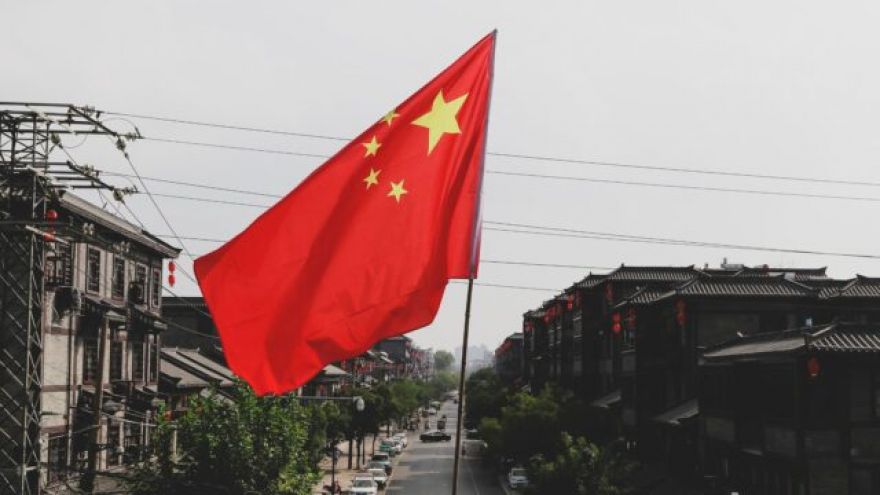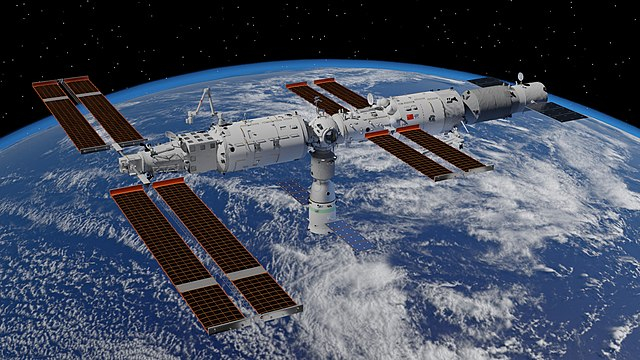
NASA Declares ‘Space Race’ With China
“It is a fact: we’re in a space race,” NASA Administrator and former astronaut Bill Nelson Politico in an interview. “And it is true that we better watch out that they don’t get to a place on the moon under the guise of scientific research.”
Nelson went on to say that China could very well attempt to keep the US away from resource-rich regions on the moon’s surface upon arriving there.

A rendering of China’s Tiangong space station. (Image: Shujianyang/Wikimedia Commons)
China’s more recent aspirations line up with a it made back in 2019 regarding the construction of an “Earth-moon space economic zone.” According to China’s own Ministry of Science and Technology, the country aimed to extract value from lunar resources to the tune of $10 trillion in economic gain per year. This statement prompted American policy analysts to warn that establishing such a zone would give China the ability to “write the rules and set standard operating procedures of who has access [to the moon].”
Now it’s especially important that the US meet its own space goals, according to Nelson. Last year’s Artemis I mission sent an unmanned spacecraft on a after a number of delays. NASA is said to have gotten the funding it needed from Congress to support its next two lunar missions, Artemis II and Artemis III—it just needs a great deal of equipment that’s still in the development phase. Nelson warns that further lunar delays will only place the US behind China as the race heats up.
“It’s entirely possible they could catch up and surpass us, absolutely,” Space Force Lieutenant General Nina Armagno late last year during China’s 10th Shenzhou space station crew launch. “The progress they’ve made has been stunning—stunningly fast.”
Now Read: